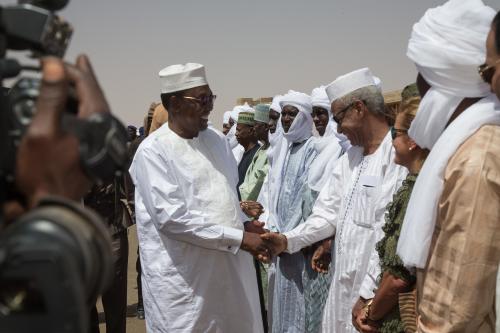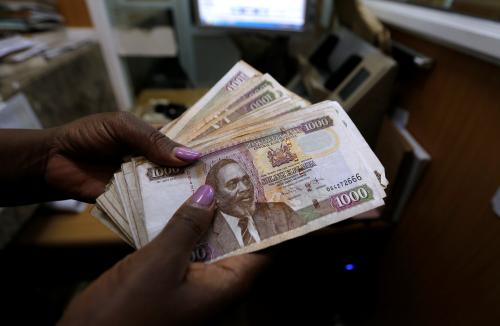Election updates: Madagascar and the DRC
Polls closed Wednesday evening in Madagascar’s run-off of the presidential elections, which were contested by two of the country’s former presidents. In the first round, neither won the 50 percent required for a win—Rajoelina won 39 percent of the vote, while Ravalomanana won 35 percent; both candidates alleged they were victims of fraud and cheating. Provisional results for second round are due by the end of the year. Marc Ravalomanana and Andry Rajoelina, who ousted Ravalomanana from the presidency in a 2009 coup, both declared victory on Wednesday night, prior to the release of official results.
Meanwhile, In the Democratic Republic of the Congo (DRC), presidential elections, which were scheduled to take place this Sunday, have been delayed until December 30, with the election board claiming that it cannot organize the ballot on time. Opposition candidates and supporters have expressed anger at the delay, prompting protests calling for the resignation of President Joseph Kabila.
The election have already been a source of violence and controversy. Campaigning was banned in the capital Kinshasa following the killing of at least seven opposition supporters by Congolese security forces, and the destruction of a warehouse containing thousands of voting machines last week has put questions about the machines’ reliability and susceptibility to vote-rigging in the spotlight.
Leaked reports allege Kenya’s Mombasa Port at risk of default
Kenya risks defaulting on a 227-billion Kenyan shillings (approximately $2.3 billion) loan payment to the Export-Import Bank of China, according to an unofficial leaked report from the office of Auditor-General Edward Ouko. The funding was initially borrowed by the Kenya Railways Corporation (KRC) to help build the Mombasa-Nairobi standard gauge railway that went into full service last year. Using Kenya Ports Authority’s (KPA) revenue as collateral for the government’s debt, construction services were provided by the China Roads and Bridges Corporation, a division of state-owned China Communications Construction Company. The railway has served more than 2 million passengers since its opening.
Senior Personal Secretary, Njeri Kimani wrote on behalf of Mr. Ouko. “The China Exim Bank would become a principle over Kenya Ports Authority if KRC defaults in its obligations and the Chinese bank exercises power over the escrow account security.” The terms of the loan specify that the port’s assets are collateral and not protected by Kenya’s sovereign immunity due to a condition waived in the contract. “The payment arrangement agreement substantively means that the [KPA’s] revenue would be used to pay the government of Kenya’s debt to China Ex-Im bank if the minimum volumes required for [rail] consignment are not met.”
So far, the Office of the Auditor General has not confirmed the accuracy of these reports. In an interview with the media, KPA Managing Director Daniel Manduku stated, “There is no risk of losing the port. In fact, we will pay this loan ahead of time. We can even take another loan and pay it on time.” Still, Kenyans’ fears over losing a critical East African seaport to China have not been quelled. There is precedent for such a takeover to occur, as witnessed in Sri Lanka where the government recently lost control of its Hambantota port to China.
Ethiopia begins moving troops from Eritrea border
As of late last week, senior military officials in Ethiopia said they were moving troops away from the Eritrea border, which has been a source of tension since war broke out between the two countries in 1998 until 2000. While the head of the army’s Western Command said that there is no need to keep a massive force at the border since relations have improved between the countries. He has not given an exact figure of how many troops would be withdrawn.
In the summer of this year, Ethiopian Prime Minister Abiy Ahmed and Eritrean President Isaias Afwerki signed a joint declaration of peace to end the ongoing hostilities between the two nations from the war two decades ago. Both leaders have stated that they now hope to focus on development and restoring diplomatic ties through trade and other economic opportunities.







Commentary
Africa in the news: Election updates, Kenya’s Mombasa Port, and troops withdrawn from Ethiopia- Eritrea border
December 22, 2018